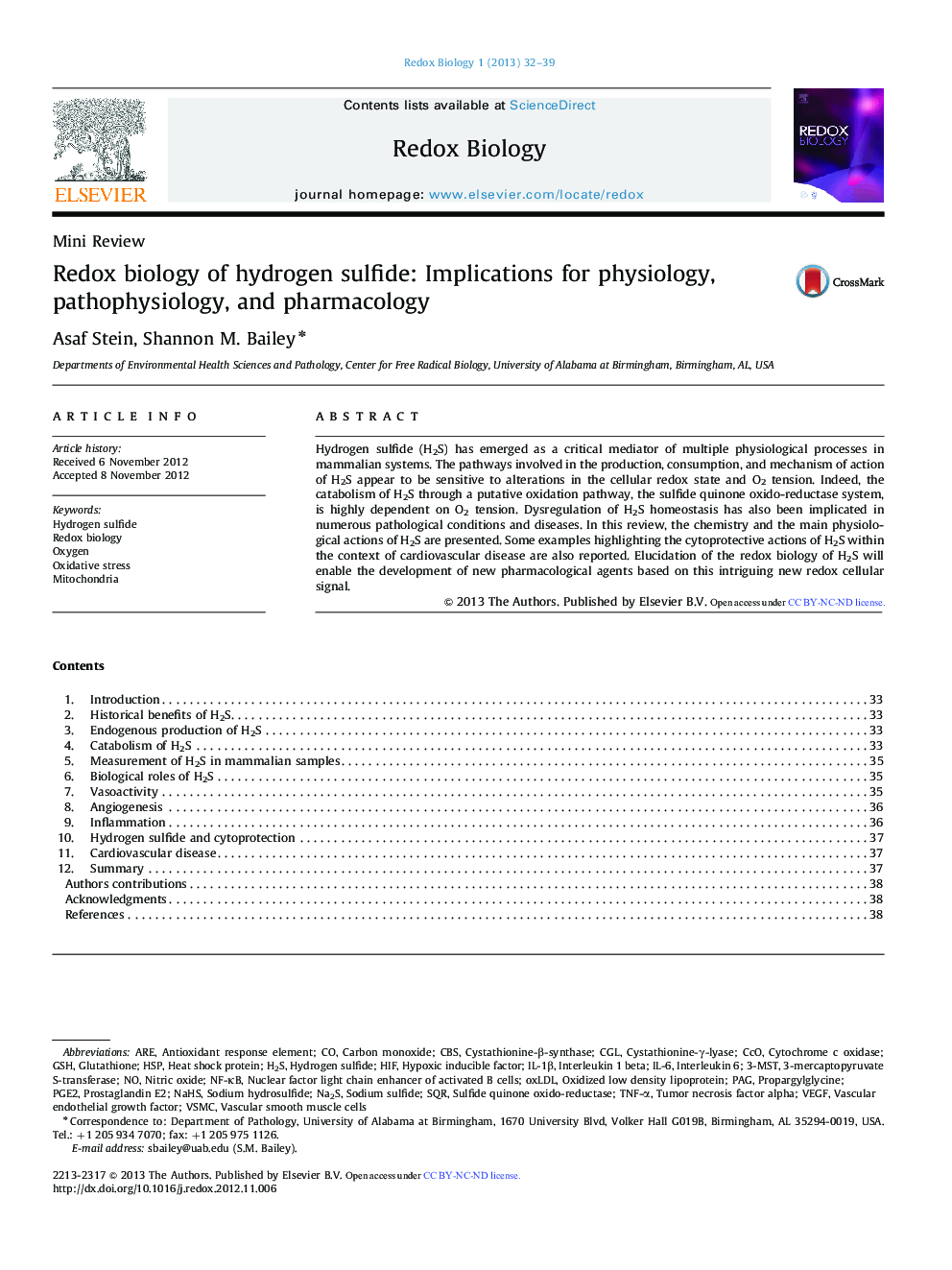| کد مقاله | کد نشریه | سال انتشار | مقاله انگلیسی | نسخه تمام متن |
|---|---|---|---|---|
| 1923226 | 1048882 | 2013 | 8 صفحه PDF | دانلود رایگان |

Hydrogen sulfide (H2S) has emerged as a critical mediator of multiple physiological processes in mammalian systems. The pathways involved in the production, consumption, and mechanism of action of H2S appear to be sensitive to alterations in the cellular redox state and O2 tension. Indeed, the catabolism of H2S through a putative oxidation pathway, the sulfide quinone oxido-reductase system, is highly dependent on O2 tension. Dysregulation of H2S homeostasis has also been implicated in numerous pathological conditions and diseases. In this review, the chemistry and the main physiological actions of H2S are presented. Some examples highlighting the cytoprotective actions of H2S within the context of cardiovascular disease are also reported. Elucidation of the redox biology of H2S will enable the development of new pharmacological agents based on this intriguing new redox cellular signal.
Figure optionsDownload as PowerPoint slideHighlights
► Hydrogen sulfide (H2S) is an endogenously produced cell signaling molecule, which plays a key role in multiple physiological processes including vasodilation, angiogenesis, and inflammation.
► The production and consumption of H2S in vivo is redox sensitive.
► Dysregulation of H2S production and consumption contributes to disease pathogenesis.
► Cytoprotective properties of H2S may be due, in part, to restoration of cellular redox status and upregulation of antioxidant defenses.
Journal: Redox Biology - Volume 1, Issue 1, 2013, Pages 32–39